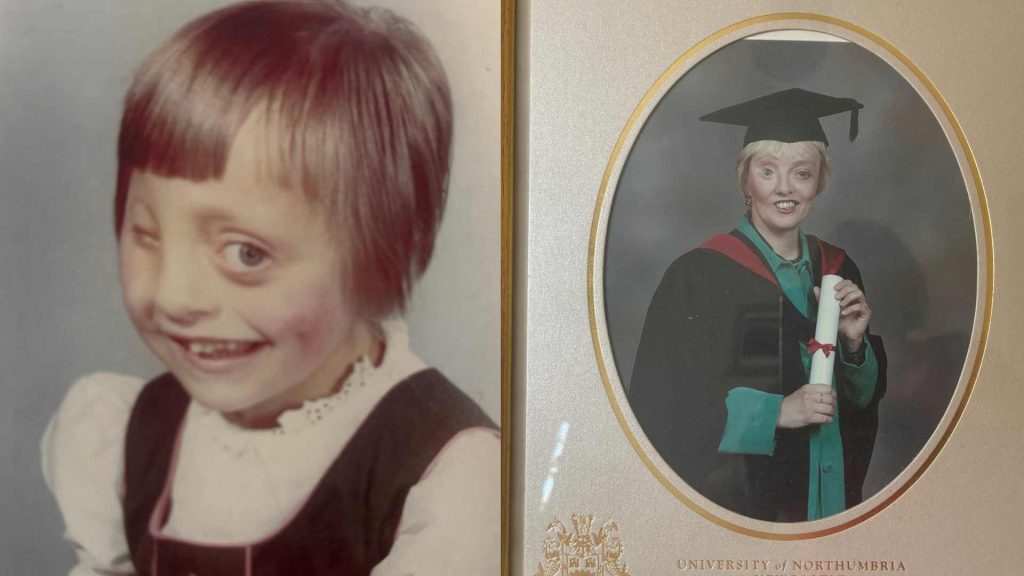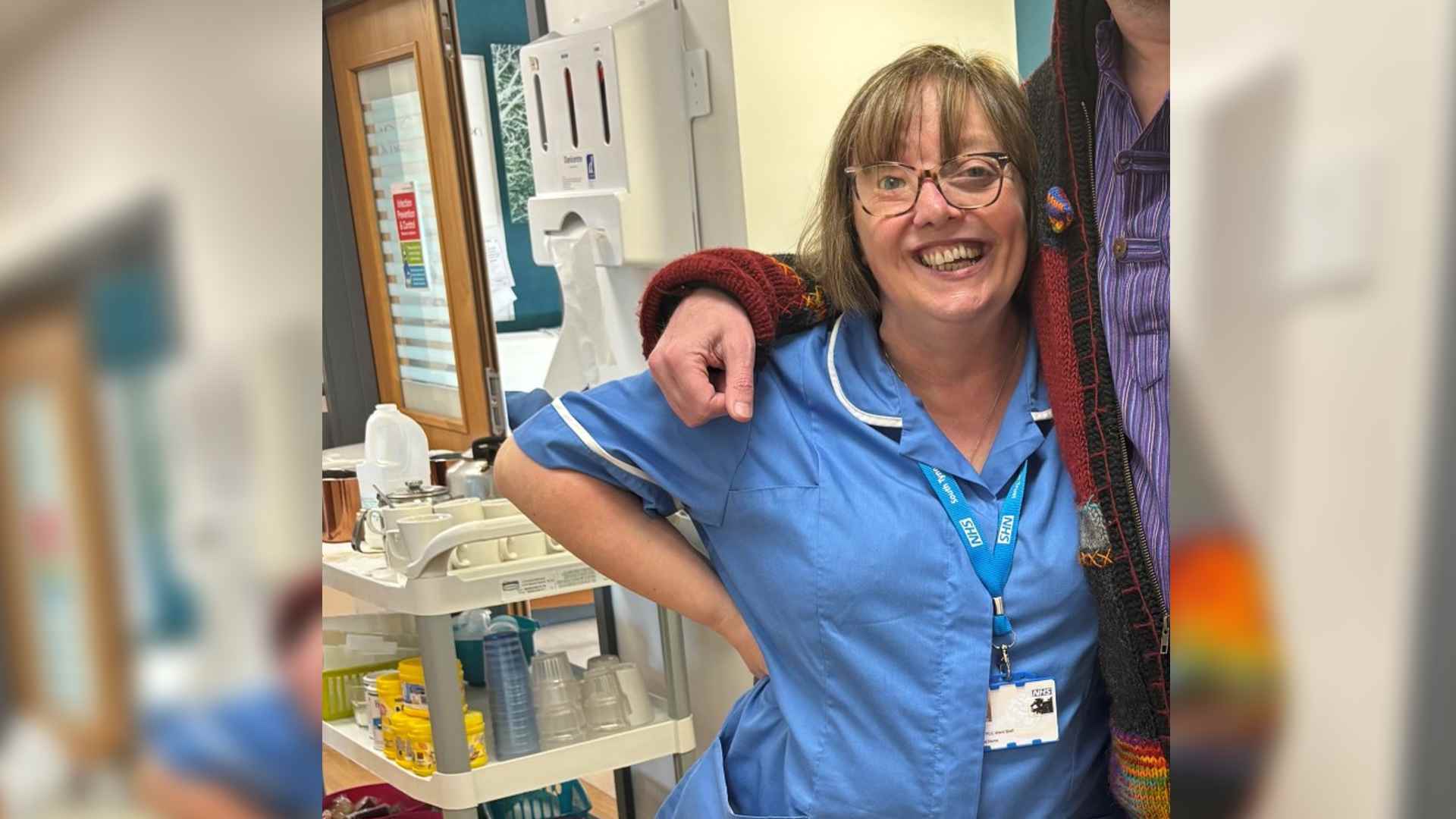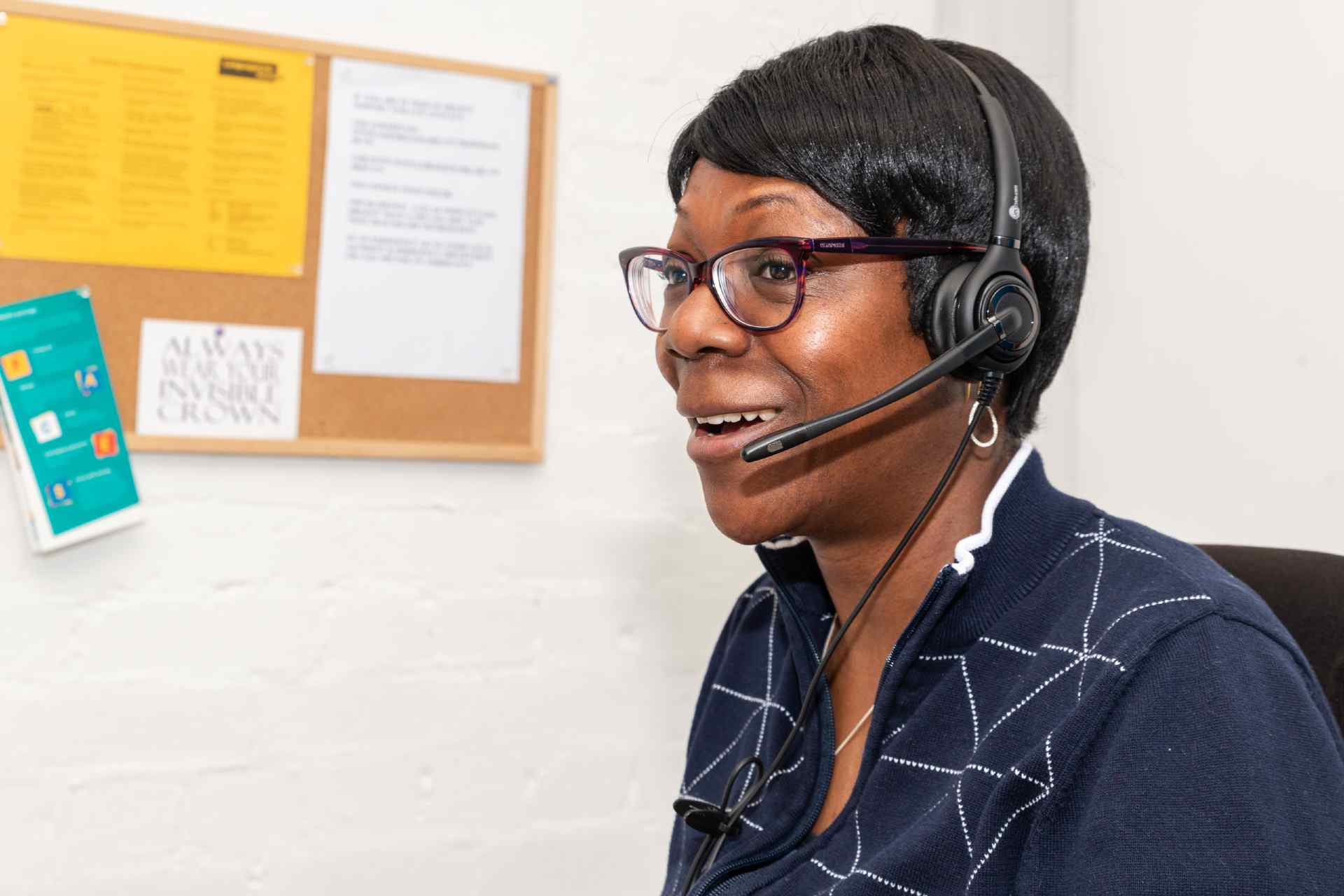I’m Michelle, I’m 57 and from the Northeast of England. I was born with a head, neck and facial difference and a benign tumour in my right eye socket.
When I was at school age, I was assessed by paediatric doctors to see whether my condition would impact my education. My mother questioned this as she said, “My daughter is not blind or deaf and is achieving all milestones”. They agreed I could go to mainstream school, but at first my peers didn’t accept me because of my appearance. I was on my own in the school yard and wasn’t invited to parties. Eventually, the kids did come to accept me, and I made friends with my classmates.
My journey of surgery began when I was two years old to investigate the tumour in my eye socket. Whilst in surgery, the tumour erupted so it had to be removed. Up until that operation, I had a bandage around my head to cover the tumour. Mam told me stories about people in the community who would look in the pram to look at my face and start rumours about why I looked the way I did.
No matter how long you’ve had your visible difference, anything can bring you back to a place of low self-esteem.
I had surgeries up until I was 13 to try and create a socket so I could have a prosthetic. The surgeons took tissue from my mouth as well as skin grafts to create it. I endured stares, nasty comments and bullying. As a shy kid, I didn’t cope well with this constant negativity. Thankfully, I had support from a large family where I was accepted. They were my safe place.
When I was 13, I was transferred to Glasgow to the craniofacial unit. For my first operation, I had to have my hair shaved and they cut me from ear to ear to prevent scarring on my face. I was in surgery all day and intensive care for a week.
I lost a lot of my education due to the surgeries over my school years. My mother always stayed with me, so had to take unpaid leave from work and drive to Glasgow and back on her day off. Sometimes we’d arrive and the consultant wouldn’t even be there!
Aside from the practical and physical challenges that come with undergoing surgery, having to wear a wig at 13 was awful. It made me feel even more different at a time when your self-esteem isn’t exactly high normally.

Michelle as a child and Michelle at her graduation
My surgeries continued until I was 27 when I went to college to become an auxiliary nurse. In 1996, I started my nursing training. As part of this, I had to have a medical assessment. One of the questions was “How will you cope if a patient asks about your face?” I was so shocked! I immediately complained about this insensitive test in the hopes others wouldn’t have to undergo similar in future.
I was accepted to start my training and worked on the head and neck unit for six years. My personal experience meant I could give empathetic support to the patients I worked with.
One day, I went for a regular eye test, and they found something wrong when they took a photo of my retina. I was referred to a consultant and diagnosed with an optic disc pit, which is a congenital non-degenerative condition. I also failed the peripheral eye test, as the practicalities of my visible difference weren’t considered, and my driving license was revoked after 30 years of driving. Therefore, I had to be redeployed and instead began working in a rehabilitation unit.
Everyone deserves to feel respected and protected in society.
Losing my independence was incredibly difficult. I decided to reach out to Changing Faces for support and was able to talk through my worries and emotions. The practitioner was really helpful and gave me several strategies and techniques to use, so I could cope during this difficult time. Counselling enabled me to come to terms with the next steps of my visible difference journey.
Fast forward to the Covid pandemic – I had to use PPE but due to my condition the masks did not fit me. There were no alternative masks that fit me, and I felt no one could help me. I was referred to occupational health, but there was nothing that could be done. I felt so self-conscious and vulnerable during this time as I believed my eye was more prominent when wearing masks.
No matter how long you’ve had your visible difference, anything can bring you back to a place of low self-esteem, so it’s important to seek support when you need it.
In the future, I hope policy makers consider visible differences more seriously when it comes to equality and inclusion. Everyone deserves to feel respected and protected in society. The sooner we can embrace diversity the better.

